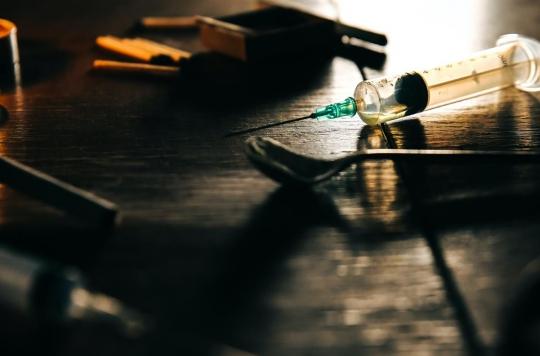In October 2016, the first two shooting rooms in France opened in Strasbourg and Paris as part of a six-year experiment. In a study, Inserm makes an assessment of the effectiveness of these devices, and the results are rather positive.

- The assessment, which includes the opinions of the police and local residents, also concludes that “an absence of deterioration in public peace” since the establishment of the structures.
- Inserm followed for a year 665 drug users from Paris and Strasbourg, but also from Bordeaux and Marseille, two cities without shooting rooms.
They had sparked a lively controversy when they opened in France six years ago. These reception centres, colloquially called “shooting rooms”, aim to protect drug addicts by offering them a space for supervised drug consumption, in particular with sterilized equipment.
Warn users against risky injections
These spaces are also intended to reduce the taking of drugs in the street, but also to warn users against risky injections, in particular the risks of transmission of hepatitis C. If shooting rooms already exist in nine other European countries (including Germany, Spain, the Netherlands and Switzerland), France has been experimenting with two injection rooms since 2016.
The first is located rue Ambroise-Paré (Hôpital Lariboisière) in the 10th arrondissement of Paris, the second within the grounds of the Strasbourg civil hospital. While the experiment is due to end in 2022, the effects are already clearly visible, says Inserm.
Risk of overdose reduced by 2%
According to this 350-page report produced by Inserm and relayed by Agence France Presse, the two shooting rooms would have allowed an overall reduction of 10% in risky injections. The study also notes a reduction in the risk of overdose (-2%), injecting the product outdoors (-15%) and ending up in the emergency room (-24%). People who go to these centers are also said to be less likely to commit crimes.
A health measure which would therefore bear fruit, with a non-negligible financial advantage: in ten years of existence, the rooms in Paris and Strasbourg would make it possible to avoid 11 million euros in medical costs caused by the use of drugs. “The sustainability of existing systems seems useful and a national scale-up of this intervention is recommended.“, concludes the report.













-1582904513.jpg)
